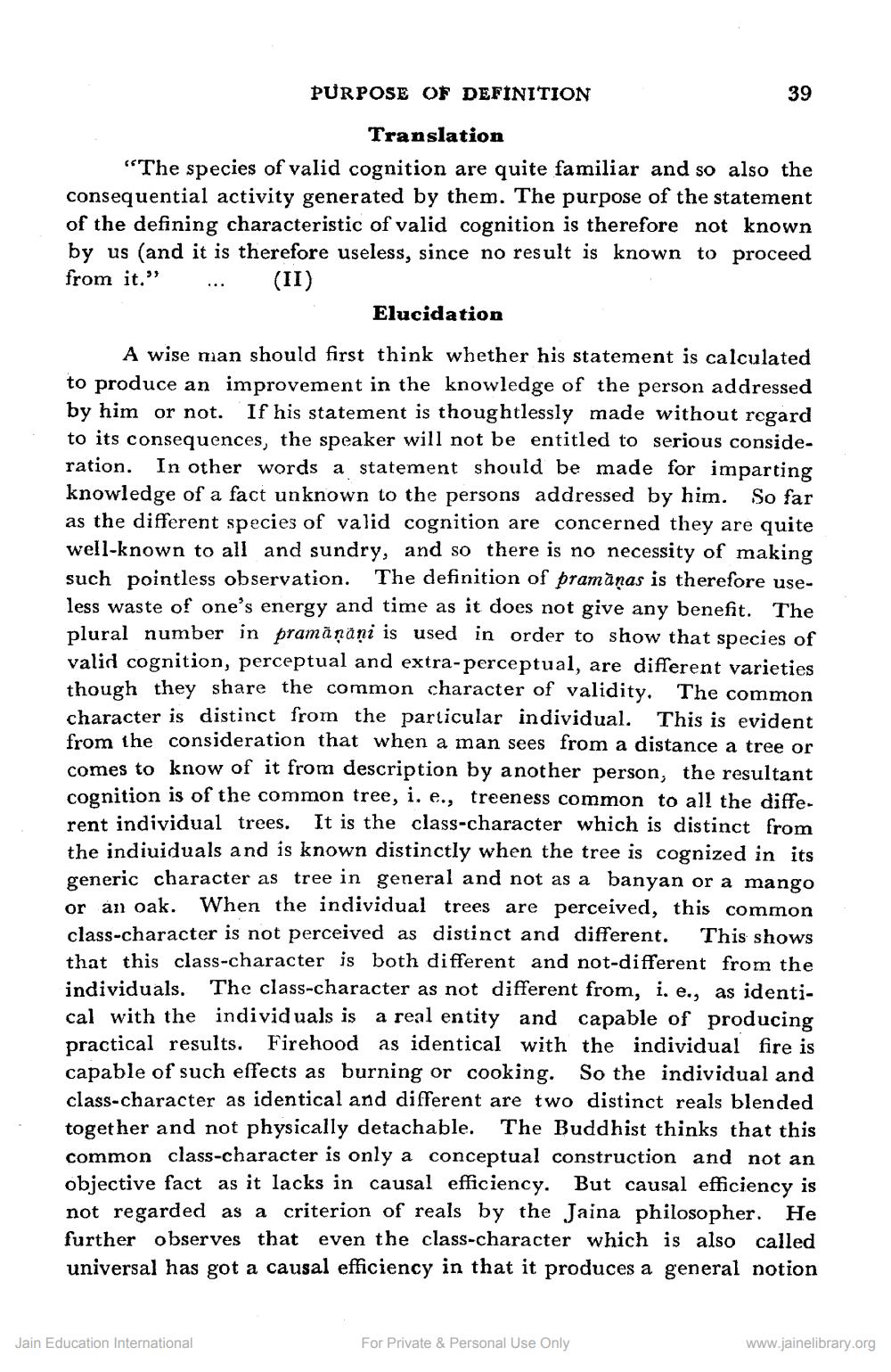________________
PURPOSE OF DEFINITION
39
Translation “The species of valid cognition are quite familiar and so also the consequential activity generated by them. The purpose of the statement of the defining characteristic of valid cognition is therefore not known by us (and it is therefore useless, since no result is known to proceed from it.” ... (II)
Elucidation
A wise man should first think whether his statement is calculated to produce an improvement in the knowledge of the person addressed by him or not. If his statement is thoughtlessly made without regard to its consequences, the speaker will not be entitled to serious consideration. In other words a statement should be made for imparting knowledge of a fact unknown to the persons addressed by him. So far as the different species of valid cognition are concerned they are quite well-known to all and sundry, and so there is no necessity of making such pointless observation. The definition of pramānas is therefore useless waste of one's energy and time as it does not give any benefit. The plural number in pramäräņi is used in order to show that species of valid cognition, perceptual and extra-perceptual, are different varieties though they share the common character of validity. The common character is distinct from the particular individual. This is evident from the consideration that when a man sees from a distance a tree or comes to know of it from description by another person, the resultant cognition is of the common tree, i. e., treeness common to all the different individual trees. It is the class-character which is distinct from the indiuiduals and is known distinctly when the tree is cognized in its generic character as tree in general and not as a banyan or a mango or an oak. When the individual trees are perceived, this common class-character is not perceived as distinct and different. This shows that this class-character is both different and not-different from the individuals. The class-character as not different from, i. e., as identical with the individ uals is a real entity and capable of producing practical results. Firehood as identical with the individual fire is capable of such effects as burning or cooking. So the individual and class-character as identical and different are two distinct reals blended together and not physically detachable. The Buddhist thinks that this common class-character is only a conceptual construction and not an objective fact as it lacks in causal efficiency. But causal efficiency is not regarded as a criterion of reals by the Jaina philosopher. He further observes that even the class-character which is also called universal has got a causal efficiency in that it produces a general notion
Jain Education International
For Private & Personal Use Only
www.jainelibrary.org




